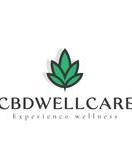Cannabidiol commonly referred to as CBD is among the several chemicals present within the plant of cannabis. CBD has been hailed in various online forums as a possible alternative to or even as a cure for various illnesses, including cancer. Many people suffering from cancer report that CBD can help them with cancer by managing symptoms and adverse negative effects of conventional cancer treatments.
However, there's a lack of studies on CBD as a treatment for cancer. We are helping patients with cancer. This article will explain CBD's nature and current research on whether CBD is beneficial and safe for those with cancer to utilize.
What is CBD?
CBD is one of the many chemical compounds present in the flowering plant. CBD is not a part of the mental-altering psychoactive results of another chemical in cannabis known as tetrahydrocannabinol (THC). THC is the compound that causes users to feel the sensation of a "high." CBD, in contrast, is employed by some people to alleviate anxiety, pain, and sleep disorders.
CBD is derived from hemp, a cannabis plant that has been specifically cultivated that has high CBD levels as well as low amounts of THC. Cannabis plants with the highest levels of THC are typically referred to as marijuana. CBD originates from an oil obtained from the marijuana plant. The oil is then taken in as a liquid in a capsule, a chewy, or inhaled via vaping. The oil can also be an ingredient in cosmetics, such as creams, lotions, and patches.

There's plenty regarding CBD, which is not yet known. CBD has been largely unstudied since, up until the year 2018 it was deemed an illegal Schedule I drug according to the U.S. Drug Enforcement Administration (DEA). A Schedule I drug is a substance declared unlawful by the DEA due to concerns about safety regarding its abuse potential and the fact that there's an unapproved medical usage for the drug. In September 2018, it was announced that the DEA upgraded CBD's status in order as a Schedule V drug. Schedule V medications have an enticingly low risk of abuse and are believed to have some medicinal use.
One CBD treatment approved by the U.S. Food and Drug Administration (FDA), named Epidiolex, is utilized to treat a rare but severely epileptic condition in children. There are currently no FDA-approved CBD treatments for cancer or the side effects of treatment for cancer.
Does CBD aid cancer patients?
Research to address this issue is in progress. Researchers are investigating the possibility that CBD might help relieve some of the negative side negative effects of cancer as well as the treatment for it, including anxiety, insomnia, pain, and nausea. Others are investigating how CBD might slow down or stop cancer development.
No major-scale studies have proven CBD beneficial for those who have cancer. Most studies evaluating CBD as a cancer treatment involved mice or human cells that were grown in the laboratory. There are, for instance, several studies that show that CBD reduces the growth rate of cancerous cells in mice that have colon cancer or lung cancer. Another study revealed that CBD, along with THC, has killed glioblastoma tumor cells that were grown in labs. Yet, no research has been conducted on patients with cancer.
Some research studies have shown that CBD, or in combination with THC, could help ease discomfort, insomnia, or anxiety. These research studies weren't specific to those who have cancer. Though no studies have proven that CBD reduces the effects of these conditions, particularly in cancer patients or those receiving treatment for cancer, some cancer patients have experienced benefits from CBD, like alleviating nausea and vomiting, depression, and other adverse reactions. As per ASCO Guidelines, you and your physician might consider prescribing CBD to manage chronic pain if you are in a country where it is legally legal. But, ASCO guidelines state that there's not enough evidence for the usage of cannabinoids in preventing nausea and vomiting among patients who have cancer and receiving chemotherapy or radiation therapy.
Two synthetic cannabis medications are nabilone (Cesamet) and Drovanol (Marinol, also known as Syndros), which are FDA-approved for treating nausea and vomiting caused by chemotherapy. The medications are created in a lab.
Is CBD suitable for those who have cancer?
It is possible to find online stories about people who have discussed the benefits of CBD as a treatment for cancer or to ease adverse symptoms. Be aware that these private stories, even though they are often well-meaning, are not supported by any scientific research and don't provide proof. The effectiveness and safety of CBD for cancer patients are yet to be established by large-scale, controlled, randomized clinical research.
Also, it is important to remember that some research studies have demonstrated that CBD could interfere with how the body handles cancer medications, known as a drug interaction. It could make treatments for cancer more harmful or less efficient. Further research is required on these effects too. To avoid these issues, consult your physician if taking CBD before taking it.
It is also possible to ask whether CBD is permitted in your state. Some states have laws that allow for the purchase and possession of cannabis products, such as CBD and THC, to be used for medical or recreational purposes. Some have stricter rules, and state-by-state laws must be understood before moving CBD across state boundaries. It is more complex on a federal scale. In the year 2018, in 2018, the U.S. government recognized that hemp could be legally grown and produced under the Farm Act. It can be utilized to create things such as ropes, clothes, and CBD oil. Also, it is important to note that hemp is not a controlled substance. This means that the federal government does not control it. Therefore, consumers need to determine the safety and quality of CBD products for themselves. Certain CBD, for instance, could contain greater levels of THC than what's listed on the label.
It's simple to always consult your physician before contemplating using CBD. As the studies do not support the usage of CBD for helping patients suffering from cancer, it's crucial to discuss the issue with your doctor before taking the. Many clinical trials are currently being conducted to study the efficacy of CBD for cancer treatment. Both you and your physician can discuss possible advantages and the risks associated with participating in a study that will assist in determining the solutions to some of the concerns about CBD and the possibility that it could reduce adverse negative effects or enhance health.

